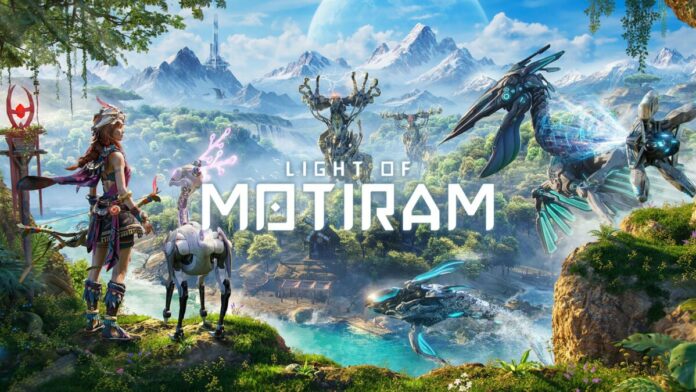Tencent has responded to the lawsuit filed by Sony over Light of Motiram being a copy of Horizon, calling the allegations “surprising” and an attempt to “isolate a well-known niche of popular culture,” while arguing that Light of Motiram merely uses “time-tested” genre metaphors.
In July, Sony filed a lawsuit against Tencent in California. The company claimed Tencent’s upcoming game Light of Motiram is essentially a carbon copy of the Horizon series, pointing to a redheaded heroine (Aloy), robotic wildlife, and post-apocalyptic landscapes as evidence it’s a clone. The complaint, filed on July 25, 2025, framed the game as an illegal attempt to capitalize on the massive success of Horizon Zero Dawn and Forbidden West.
Now, Tencent has submitted its response (via The Game Post). The Chinese tech giant filed a dismissal motion, vehemently opposing Sony’s lawsuit as excessive. Tencent argues Sony isn’t genuinely trying to protect unique creative work; it’s attempting to monopolize entire narrative conventions that dozens of other games have used for years.
The company is asking the court to dismiss the case entirely, citing lack of jurisdiction, failure to state a claim, and the fact that Light of Motiram won’t launch until late 2027. Simply put, Tencent states Sony is trying to lock down ideas and imagery that have been part of gaming for decades: redheaded heroes, ruined civilizations, and mechanical monsters. According to Tencent, Sony wants the court to grant them exclusive rights to elements appearing in everything from The Legend of Zelda, Far Cry, Outer Wilds, to Enslaved, Biomutant, and beyond.
Tencent also called Sony’s core claim—that Horizon Zero Dawn was “unlike any fictional world created before [or] after”—”astonishing” and “completely contradicted” by Sony’s own developers. Tencent argues Sony conveniently omits key context, contending the elements in dispute aren’t proprietary to any company. Tencent asserts these are broadly used concepts in dozens of other games, and Sony is merely attempting to claim ownership.
According to Tencent, even Sony’s own developers didn’t find the Horizon concept particularly original when first pitched. The company cites a behind-the-scenes documentary where Horizon Zero Dawn art director Jan-Bart Van Beek himself admitted the game’s core premise—a redheaded adventurer surviving in a machine-dominated world—had been done before.
Specifically, he compared the project to Enslaved: Odyssey to the West, a 2010 game with similar themes and visuals. At the time, Van Beek even warned the project felt too close, stating: “I don’t think we should do this; it treads too much on these other things.” Sony initially shelved the idea for this reason, Tencent says, but later revived it knowing it lacked originality.
Beyond creative critiques, Tencent also seeks dismissal on purely legal grounds. Firstly, Tencent asserts a major flaw in Sony’s suit is that it sued the wrong entities (Tencent America, Proxima Beta U.S., and Tencent Holdings)—or at least, not those actually developing or publishing Light of Motiram.
According to the dismissal motion, Light of Motiram is being developed and published by two other Tencent-affiliated companies: Polaris Quest/Aurora Studios, a Chinese game development team operating under Tencent Technology (Shanghai) Co. Ltd, and Proxima Beta PTE Ltd., a Singapore-based entity “which does business as ‘Tencent Games’ and/or ‘Level Infinite’.”




